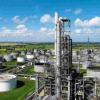Hi, Iam relatively new to process engineering as my education and prior experience was in a different facet of chemical engineering. But because of demands in the current job I was a bit forced to switch to process engineering a few years into my career after having specialized in another area. Now you know that it is always difficult, because the inherent feel for equipment and the operational experience a process engineer develops cannot be learnt overnight.
However I have limited myself to conceptual process engnieering and not BASIC or detailed engineering.
Which means I will have to design a process, size equipment, prepare PFDs and prepare conceptual cost estimates. Iam fairly familiar with some of tools like HYSYS/Aspen plus/HTRI and ICARUS(for costing)
what I need advice on is the following:
1. without getting a lot of BASIC/detailed engineerign knowledge(to the point whereyou are doing stuff like HAZOP, logic control, relief valve sizing,pipe sizing etc.) is it possible to carve a career out of just these tools I know and limiting myself to conceptual process engineering? I work in a R&D type of organization and hence asked to do this kind of workusually for long termprojects and for feasibility studies etc.
2. Iam now few years experienced doing conceptual design/engineering. what are the tools Iam missing in my toolbox that could aid in being a better process engioneer? do I need to take any courses on detailed engineering in order to be a better conceptual engineer?
3. Are there any good online resources besides these site where I could access free lectures or tutorials which helpin stuff like developing a flowsheet from process chemistry, choosing the right equipment to design process etc. I know textbooks are out there but they are time consuming to read through sometimes and I consult them occasionally.
I know nothing can replace operational knowledge but even someone who was actually worked in the plant for a few years cannot be an expert on all kinds of equipment design. He/she would have run maybe 1 or 2 types of equipment, but not all. For example, you might have run distillation columns, but not a crystallizer. Or you may have done reactor troubleshooting but might not have had firsthand knowledge on extractor.
Being a process design designer requires to have fair amount of knowledge on broad range of equipment and ability to simulate them.
I have been fairly successful doing soem of that, simulating columns, exchangers etc. and also preparing conceptual cost estimates.
Your tips on improving process engineerign feel and also tips on knowing any other tools, would be of great help.
PS: Not really interested in fundamental modelling and I do not want to get too deep into detailed engineering
Tools are only as good as the inputs you feed them. To extract the best out of them and to feed them with better inputs you need to be a good process engineer in the first place with decent engineerign judgement. THats what Iam trying to hone, in addition to adding any tools in my toolkit along the way that would helpexecute my ideas. So please advise.

 FB
FB








![[Research Request] Uc Berkeley Student Seeking Process Engineers For 1 - last post by](https://www.cheresources.com/invision/public/style_images/master/profile/default_large.png)



